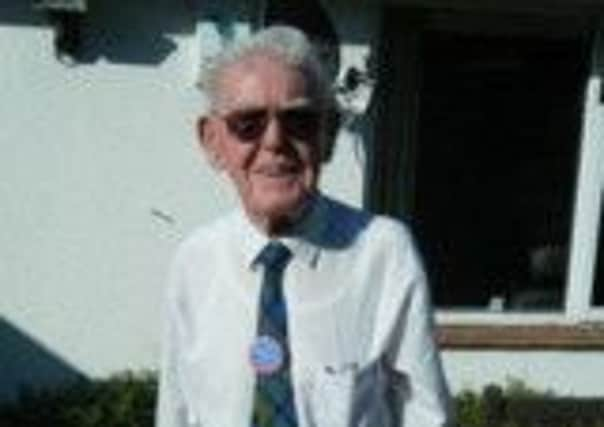Obituary: Jock Kane, radio operator


Jock Kane was a resolute and determined radio operator who decided to bring into the public domain serious breaches of security at GCHQ in Cheltenham. He was a man with a strong sense of duty and loyalty, but breaking ranks and exposing wrongs-doings was frowned upon in the Eighties – his action took much courage. He had wide knowledge of security matters dating back to the Second World War, when he served as an RAF special operations radio operator. Post-war, he worked for the government signal intelligence centre at GCHQ. After 30 years’ service, he decided to speak out against nefarious practices.
John Kane was born in Coatbridge. His mother died in childbirth when he was two. His father and family brought him up and he attended St Patrick’s High School, Coatbridge. He joined the RAF in 1939, training as a radio operator at Blackpool and then flew numerous sorties over the Atlantic, perfecting the radar signals equipment.
Advertisement
Hide AdAdvertisement
Hide AdKane saw service in North Africa and Italy and in 1944 was involved in fierce fighting in Yugoslavia and Greece. His specialist radio knowledge was of particular value in the Cold War years and Kane was posted to Hawklaw near Cupar. The camp operated as a GCHQ-controlled Y-Station, which intercepted signals from behind the Iron Curtain.
At GCHQ, Kane worked his way through the sections – from 1956-78 he was a senior operator. It was in 1980 that he became the first whistleblower by exposing alleged corruption at the offices in Hong Kong. He also noticed that staff were being sent on training courses to Edzell in Fife and were entering double claims.
Kane went to the journalist Duncan Campbell as he was frustrated at the government’s failure to investigate his allegations. Campbell and Granada’s World in Action uncovered serious misdemeanours. The tension escalated when the Independent Broadcasting Authority censored some of the allegations in the programme and insisted that a still photograph of GCHQ should not be shown – resulting in a blank screen for ten seconds.
After the Hong Kong revelations, three journalists led by Campbell followed up the GCHQ allegations and were arrested. After two trials, all three received conditional discharges.
The trials, however, opened up the gates for the press to make extensive inquiries and Kane got involved in various interviews and TV documentaries. He appeared on Channel Four’s After Dark, in which he discussed with a former home secretary (Merlyn Rees) why he had been singled out by the authorities. Kane, in reasoned and deliberate voice, said: “Special Branch arrived at my house in Hampshire on a Sunday morning and I endured three days of intense questioning. I was never arrested or charged.”
Two books written by Kane about GCHQ’s lax conduct – The Negative Asset and The Hidden Depths of Treachery – had, as Kane said on TV, “injunctions slapped on them and were never published”. Indeed, both were seized under the Official Secrets Act as it was alleged that publication “would be a breach of confidentiality owed to the Crown”.
Numerous allegations were made in the press about these mysterious and uncorroborated goings-on. Despite meetings with two prime ministers, little was done to solve Kane’s central concerns: namely, the line of command in the service itself and who policed the large organisation. Speaking with a delightful Scottish lilt, Kane added on television: “Loyalty to Queen and country has taken a back seat now. Inter-departmental jealousy is of more importance.”
Whether Kane was influential in tightening up the UK’s security system and trapping a KGB agent has never been confirmed. Indeed, when questioned in the House of Commons, then prime minister Margaret Thatcher was evasive in her replies. Many of his colleagues chided Kane for taking security too seriously. But, significantly, Mrs Thatcher refused to publish the Waddell Report which, it is believed, substantially supported Kane.
Advertisement
Hide AdAdvertisement
Hide AdDuring his war service in Greece, Kane met his future wife, Alexandra, a member of the Greek resistance who had spent a year in prison in 1941 for assisting stranded British and Australian soldiers after the invasion of the Nazis. They married in 1949.
The marriage was dissolved and in 1983 he married Cynthia. They moved to Hampshire, where he worked as a milkman and school bus driver. Jock Kane is survived by his wife and two sons from his first marriage.